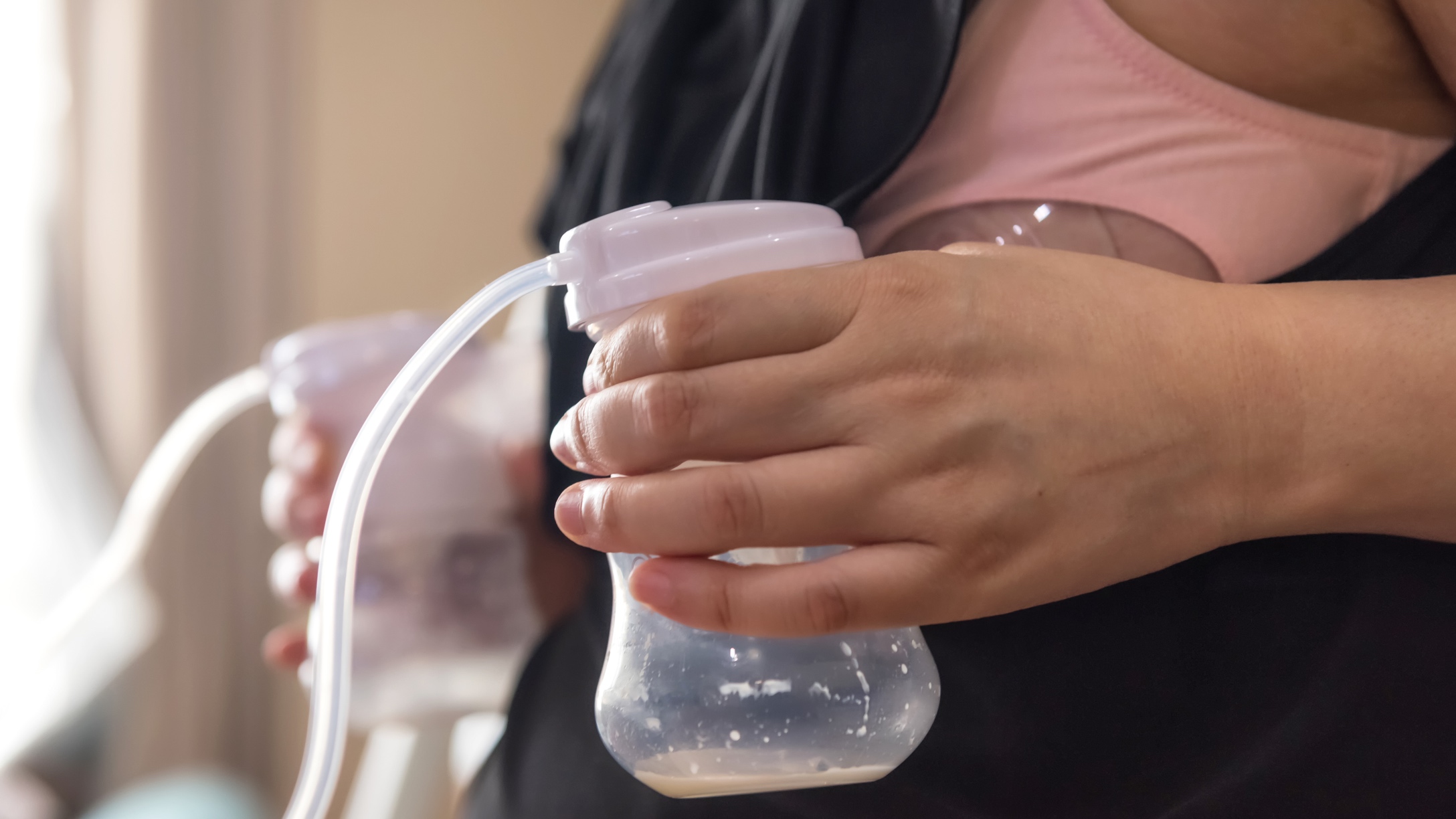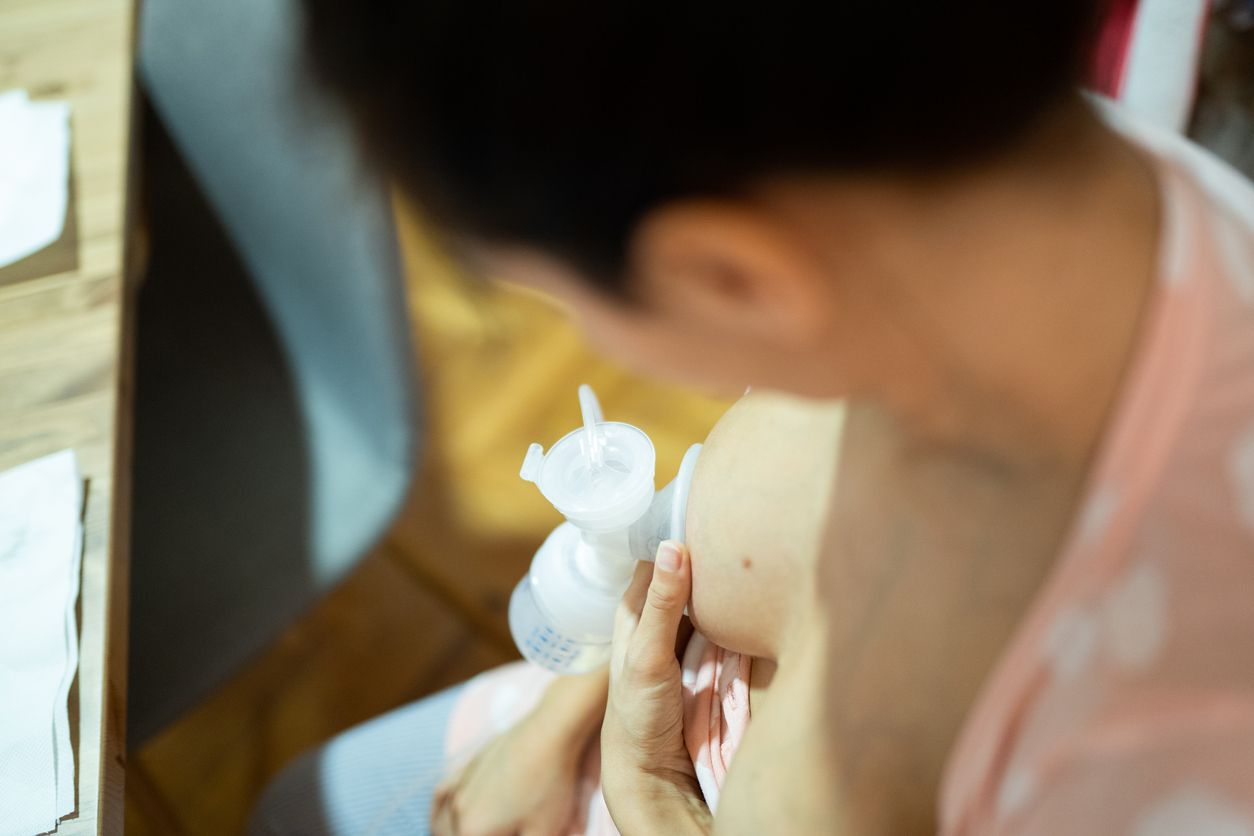
Many women will tell you that the world is not always kind to breastfeeding parents. On the micro level, there are sometimes disapproving looks and inappropriate questions, and on the macro level, there have been times when government entities actually threatened to seize breast milk a mother has worked so diligently to produce.
In addition, many breastfeeding parents have returned to work to find that their employers have little to no provisions in place to ensure that breastfeeding remains a viable option. Thankfully, the expansion of a 2010 law, called the PUMP Act for Nursing Mothers, should make things a bit easier.
More from CafeMom: Five Ways an IBCLC Can Make Your Breastfeeding Journey Easier
The law gained support because of new recommendations from medical experts, as well as the infant formula shortage of 2022.
New provisions to the Providing Urgent Maternal Protections for Nursing Mothers Act, or PUMP Act went into effect last week, reported The New York Times. The law's expanded protections will allow more breastfeeding moms the right to break time and a private space to pump. The new law notes that private space must be something other than a bathroom.
The PUMP Act, first introduced in 2021, was largely supported by both Democrats and Republicans, and gained more traction after the release of new breastfeeding recommendations from the American Academy of Pediatrics and the baby formula shortage that caused many families distress throughout 2022.
More from CafeMom: Hero Mom Rents Breast Pump & Donates Thousands of Ounces of Milk Amidst Formula Shortage
A nonprofit organization helped to write the new legislation.

Sarah Brafman, a national policy director at A Better Balance, a nonprofit advocacy organization that helped write the legislation, said the new guidelines and the formula shortage sparked a debate about the lack of support for nursing parents.
“There was a recognition that we need to be doing more to support pregnant and postpartum people,” Brafman told NY Times. More than 80% of babies born in the US receive some breast milk, according to the Centers for Disease Control and Prevention. But by six months, that number has dropped to 55.8%.
In the original 2010 law, millions of workers were still unprotected.
Research found that working mothers granted both the space and time to pump were 2.3 times more likely to still be exclusively breastfeeding at six months compared to mothers who didn’t have similar access.
In 2010, Congress, through the Affordable Care Act, required employers to provide time and space for nursing parents up to one year after the child’s birth. But the rule didn’t apply to workers who were exempt from overtime pay, including those with managerial duties, those in transportation and agriculture, and those who earn commission, among others.
As a result, millions of employees found it hard to pump at work. Additionally, there were few legal actions a worker could take against an employer who denied them space to pump.
Workers can now file a complaint or sue if they don't have access to a place to pump.
The new law covers all employees for a year, with the exception of airline crew and pilots because of airline industry objections. Certain coach and railway workers won’t see the effect of the protections until 2025.
The updated law requires that the pumping space be “clean, sanitary, shielded from view and free from intrusion," Brafman told NY Times. The space must also be functional, meaning it includes “a surface, is close to running water and there is some refrigeration nearby that can be used to store the milk,” Brafman explained.
If employers are unwilling or unable to meet these requirements, workers can file a complaint with the Department of Labor or a lawsuit against their employers. If the employer is found liable, the worker could receive "meaningful remedies," including “recovery for lost wages, attorney fees or punitive damages for emotional distress or health complications related to the inability to pump,” according to Brafman.
Brafman and other experts encourage all nursing mothers and potential nursing mothers to have a conversation with their employers about their needs. The new PUMP Act does put more of the responsibility on employers.
“There’s a lot of advice for people who are breastfeeding and a lot of suggestions for how to get your employer on board,” Dr. Katy Kozhimannil, a professor with the University of Minnesota School of Public Health, told NY Times. “I think that’s too high a burden to put on postpartum people who are working and caring for an infant, and breastfeeding. The PUMP Act really makes it clear that the responsibility lies with the employer, not the employee.”




